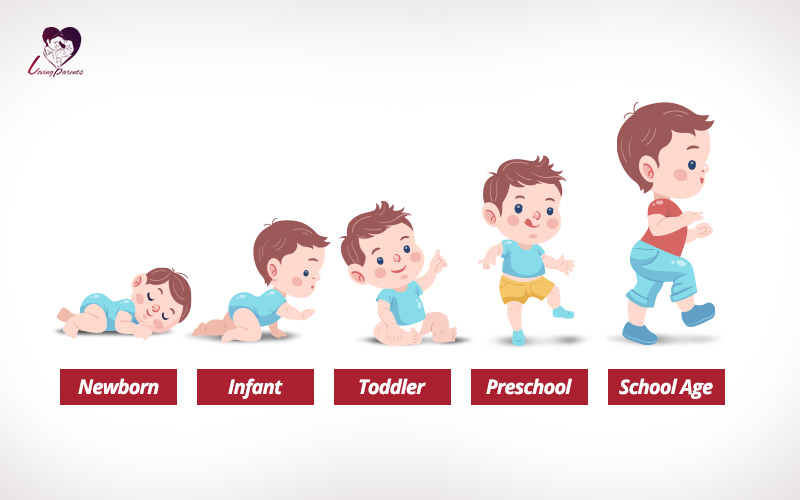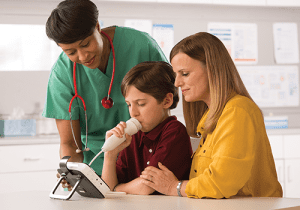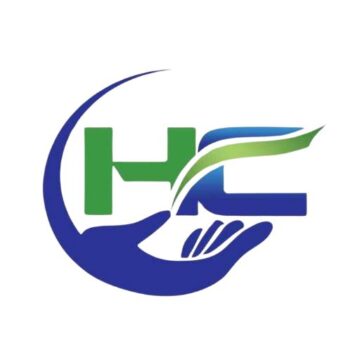Homeopathy is a therapeutic method based on the law of similars. As a therapeutic science it believes in the holistic concept of the individual wherein the individual is the main focus with respect to his mental state and physical peculiarities. Homeopathy is a non-toxic system of medicine used to treat illness and relieve discomfort of a wide variety of health conditions.
Homeopathy can play a vital role in shortening the duration of a disease when treatment is started early. A well-selected remedy quickly supports the body mechanism to raise immunity and clear complaints at the earliest. Homeopathy can treat almost every complaint of the body safely—aiming for harmony of health without side-effects and complications.
In pediatric cases, prescription is mainly guided by observation and the emotions of the child. Because homeopathy emphasizes the mental state, we must be keen observers—yet it’s challenging to capture a child’s mental state at the peak of sickness. For good results in pediatric practice we should refine case-taking, repertory use, and rubric selection. Specific skills and techniques are needed to take a good case history of a child. The better we know the individual, the better we can help.
Case taking individualizes the patient for remedy selection. It includes interrogation, observation, and interpretation—and it varies with age. The same set of questions will not apply to all ages (you cannot ask a 4-month-old about video games, just as you cannot ask an 8-year-old about toilet training!).
So, we must understand “normal development,” commonly viewed under:
- Milestones
- Physical development
- Social and emotional development
- Intellectual development
All children follow a similar developmental pattern from one stage to the next—standing before walking, drawing a circle before a straight line. Knowing these helps us observe, interpret, and frame age-relevant questions. Broad stages include:
- Newborn (0–28 days)
- Infant (up to 1 year)
- Toddler (1–3 years)
- Pre-school (3–5 years)
- School-going (after 5 years)
The knowledge of milestones and growth helps in selecting proper rubrics and, thereby, the final remedy—or ruling one out. It is rightly said, “A well-taken case is half cured.” For a good homeopathic prescription, case-taking remains the most important and vital part of the process.
The case should capture individualizing characteristics during the peak of sickness. A healthy child builds a healthy family and nation; hence a comprehensive pediatric case-taking approach benefits society. Pediatric patients are common in general practice. Many parents prefer homeopathy for their children, believing it is safe. If we cure kids gently and effectively, we succeed as homeopathic physicians.
In selecting the simillimum, the supremacy of mental symptoms over physical ones has been repeatedly confirmed—from Hahnemann to today’s stalwarts. Yet it is often difficult to find clear mental symptoms in every patient. Even so, with practical methods, the mental state can be usefully elicited—even in physical illnesses like fever, pain, cough, and skin diseases.
Through practice, many cases—both physical and mental—have been cured by considering the mental state alone. For overt mental disorders (anxiety, schizophrenia, depression, etc.), criteria differ, and the way mental symptoms guide homeopathic diagnosis and prescription is distinctive. Lifestyle advice may help, but without proper remedy the benefit is usually short-lived in chronic disease. Even allopaths now acknowledge that mental symptoms are not limited to psychiatric cases alone; homeopathy recognized this long ago.
A CASE
A 10-year-old boy was brought for asthma. Parents reported recurrent allergic bronchitis—frequent seasonal attacks requiring nebulization and hospitalization. Curiously, the child “never complains,” remains cheerful, attends school, and keeps playing—even during attacks. In clinic, despite distress, he kept touching everything on the table.
Rubrics considered:
- High-spirited — lively, vivacious, energetic in spite of difficult breathing.
- Well — says he is, when very sick — answers “I am fine,” smilingly, though visibly distressed.
- Touching everything, impelled to — keeps touching objects despite parents’ restraint.
A dose of Hyoscyamus 30 settled the episode; thereafter he reportedly did not need hospital nebulization.
Medical science advances fast; knowledge grows boundless. Even so, countless pediatric cases demonstrate that, through precise reading of the mental state, rapid and gentle cures are possible with homeopathy.
পোস্টটি শেয়ার করুন
Homeopathy is a therapeutic method based on law of similars. As a therapeutic science it believes in the holistic concept of individual wherein the individual is main focus with respect to his mental state and physical peculiarities. Homeopathy is a non-toxic system of medicine used to treat illness and relieve discomfort of a wide variety of health conditions.
Homeopathy can play a vital role in shortening the duration of course while treatment is started in the start-up phase itself. It is better to treat the complaint as early as possible to get speedy and complete cure or otherwise complication(s) are inevitable. A well-selected remedy quickly supports the body mechanism to raise the immune level and clears the complaints at the earliest. Homeopathy can treat every complaints of the body safely to have good harmony of health without side-effects and complications.
In pediatric cases prescription mainly
done by observation and emotion of the kids. As we are doing the Homeopathy only
on the basis of mental state, we should be a keen observer. It is very
difficult task as a Homeopath to find their mental state during pick of their
sickness. For the good
result in pediatric practice, we should improve our knowledge in case
taking, repertory, rubrics etc. Specific skills and techniques need to be
employed to take good case-history of a child. If we can know the individual
better it will be of immense help in many of the human sciences. Increasing the
knowledge of most intricate subject in the world will truly and proudly make us
claims regarding the true medical advancements.
Case taking is
the process by which we attempt to individualize our patient for the purpose of
selection of remedy. It consists of interrogation, observations and interpretations,
which vary depending on the age group of the child. These variations have to be
done compulsorily as same set of questions will not be applicable to kids of
all age group. Example- You cannot ask a 4 months child about TV and video
games as we cannot ask an 8year old about toilet training.
This should
always be the attempt of every intelligent physician to tailor made the
questionnaire according to the need of patient. To understand the questions to
be asked we need to understand the state of child by knowing what is relevant
or irrelevant for him with respect to his age. Hence, we have to understand
‘normal development’, which are studies under following headings:
·
Milestones
·
Physical
development
·
Social
and emotional development
·
Intellectual
development
All children
follow a similar development pattern with according to one stage to next stage.
For example, baby stand before they walk, toddler draw circle first before they
draw a straight line. By these, we know what to observe, how to interpret, help
us to frame questions relevant for a particular age group. To understand a
normal child, we have to understand the various stages of growth of a child.
The stages are-
·
New
born (0 – 28 days)
·
Infant
(up to 1 year)
·
Toddler
(1 – 3 years)
·
Pre
–school (3 – 5 years)
·
School
going (After 5 years)
The knowledge about stages of milestones and
development of child is very useful for selection of proper rubrics and hence
of final remedy or rule out a remedy.
It is rightly
said, “A well Taken Case is half cured”. One of the master said for a
good Homeopathic prescription Case taking remains the most important and vital
part of Homeopathic process of cure.
The Case is
taken in such a way that it must contain individualizing characteristics during
peak of the sickness. A healthy child builds up a healthy family and nation so
for healthy nation we want healthy child. Hence we need a comprehensive
approach to pediatric case taking for benefit of society. Kids are important
part of clinical practice. Pediatric patient are more common in general practice. In this
generation, parents always prefer the Homeopathy to his child because of their
notion that Homeopathy is safe. And if we cure the kids easily and gently then
we will be a successful Homeopathic physician.
In the selection
of simlimum for any case, the supremacy of the mental symptoms over the
physical ones has unanimously been confirmed by the experiences of homeopaths
from Hahnemann down to today’s established stalwarts.
But in spite of
its supremacy it is said that finding the mind symptoms or mental state in
every patient is difficult. Taking this notion into consideration, efforts have
been made by this system to make the use of mental state simple and practical. According
to another line of thinking, it is easier to locate mind symptoms only in the
patients who are suffering from mental diseases like anxiety neurosis,
schizophrenia, depression etc. On the contrary it is possible to cure even the
physical problems like (fever, pain, cough, skin diseases etc.) with the help
of given mental state of the patient alone.
In my long
practice with this method I have enough data to prove that we have made
possible the impossible task of locating and utilizing mental symptoms in every
case. For eliciting and evaluating mental symptoms for diseases that are
related to mind there is a different criterion. Obviously, there are
distinctive ways of making their use for homeopathic diagnosis and
prescription.
Other thing
which is done by some physicians is to take help of other sources in addition
to medicines in cases related to mind, like asking the patient or the patient’s
attendant to change his life style, avoid anger, stress, worrying, alcohol, or
smoking etc and to do exercise, eat nutritious food, or take enough sleep etc.
In some cases the help of tranquilizer is taken to keep the patient calm so
that he does not disturb, hit or get violent with his family members or other
people around. There is a limitation to selecting medicine for mind diseases;
even long case taking does not help much.
According to the
religion, the practice of self control over one’s desires manifests in the form
of (Indulgence), (Anger). (Greed), (Affections), (Ego). No doubt, the mind
receives charges from outside like the environment, surroundings or the society
etc and each has its own bearing on an individual’s mind. But the mind remains
charged only for so long as the contact is maintained. Diversion of mind
without the aid of medicine does work, but only in cases that are not chronic
in nature.
In a really sick
person, the relief is only short lived. You cannot expect the patient to cure
through talks, discourses and lectures alone. Your patient says, “I understand
what you preach but it is difficult to practice. How much so ever useful your
advice may be, it only annoys him”. Now even allopaths are realizing that
mental symptoms are not limited to mental cases alone. Homeopathy has
recognized this fact from the very beginning.
Many cases
(related to physical as well as mental problems) that were cured by considering
the mental state of the patient alone are as follows:
A CASE
A boy of 10 years was
brought to me for the treatment of asthma. The parents narrated that the child
has a very serious disease - Recurrent Allergic Bronchitis. During the change
of season, he gets frequent attacks and has to be nebulised and hospitalized
very often.
I inquired about the child, “How does he
behave during sickness?”
The parents explained, “It hardly makes
any effect on him. He never complains of any problem at all.”
They added, “But anybody who would see
him would be moved, the child is in great agony during the attacks. Moreover he
keeps on playing, attending school, etc. It appears as if no effect is there on
the child.”
Even in the clinic, he was sitting right
in front of me and touching everything i.e. my stethoscope, my computer and
books, etc.
The following rubrics were taken:
HIGH - SPIRITED
WELL - says he is, when very sick
TOUCHING; everything impelled to
HIGH - SPIRITED: There have been recurrent attacks of difficult breathing, yet the child remains very much lively, vivacious and energetic.
He is just as energetic as ever, full of life. He does all the activities enthusiastically.
Perhaps the impact of the disease on the economy is so meager that it leaves
the patient feel like OK.
WELL - says he is, when very sick: He does not feel sick; during the attack when the child was brought to me, the first question I asked him was, “How are you?”
He replied, “I am fine” smilingly.
But to have a look at him was fearful; any moment he could suffocated.
TOUCHING everything impelled to: Being in such agony, he was touching all the objects lying on my table, despite the parents stopping him.
A dose of Hyoscyamus 30 settled the entire affair. After that, he never went to the hospital for nebulization.
Medical science has now advanced very far & fast. The knowledge is growing boundless and we are trying to know about everything in more and more details. In this development we are going into the depth of everything and trying to extract the maximum information. So many pediatric cases we will demonstrate purely based on Homeopathy through mental state and the radical cure happened within a very short span.
https://www.doctorbangladesh.com/dr-md-hasanuzzaman-homeo/
https://bangladeshhealthalliance.com/dr-md-hasanuzzaman/





